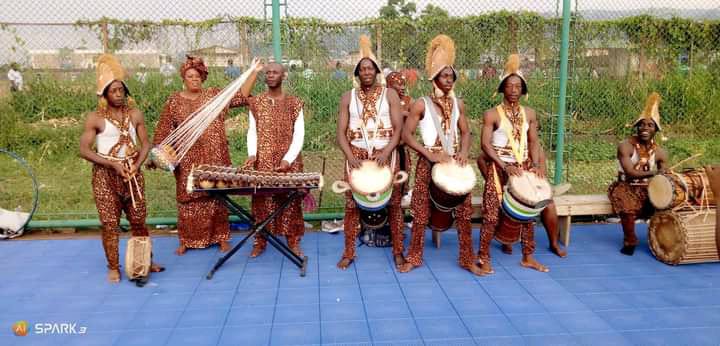Exploring the Cultures of Africa
Africa is a continent of immense diversity, boasting a rich tapestry of cultures, languages, traditions, and histories. Stretching from the Mediterranean coast in the north to the southern tip of the continent, Africa is home to over 1.3 billion people, belonging to thousands of ethnic groups and speaking more than 2,000 languages. The cultural landscape of Africa is as varied as its geography, encompassing ancient civilizations, vibrant indigenous traditions, and dynamic contemporary expressions. In this comprehensive exploration, we will delve into the multifaceted cultures of Africa, examining their historical roots, cultural practices, artistic achievements, and contemporary significance.
Historical Context
The cultural heritage of Africa is deeply intertwined with its history, shaped by millennia of migrations, interactions, and exchanges. Africa is widely regarded as the cradle of humanity, with archaeological evidence indicating that modern humans originated on the continent over 200,000 years ago. Over millennia, various civilizations rose and fell across the continent, leaving behind legacies that continue to influence African cultures today.
Ancient Egypt, located in the northeastern corner of Africa, stands as one of the most iconic civilizations in history. With its monumental pyramids, intricate hieroglyphics, and sophisticated architectural achievements, ancient Egypt exerted a profound influence on the development of African and world civilizations. The Nile River, the lifeblood of ancient Egypt, facilitated trade, communication, and cultural exchange with neighboring regions, contributing to the diffusion of Egyptian culture across Africa and beyond.
In West Africa, the empires of Ghana, Mali, and Songhai flourished between the 8th and 16th centuries, dominating the trans-Saharan trade routes and fostering the exchange of goods, ideas, and cultural practices. The city of Timbuktu emerged as a renowned center of learning, attracting scholars, traders, and artisans from across the Islamic world. The wealth and power of West African empires were built on lucrative trade in gold, salt, and other commodities, fueling the growth of urban centers and the patronage of arts and architecture.
In East Africa, the Swahili Coast emerged as a vibrant hub of maritime trade, linking the African interior with the Indian Ocean world. The Swahili people, whose culture is a fusion of African, Arab, and Persian influences, established prosperous city-states along the coast, such as Kilwa, Mombasa, and Zanzibar. The Swahili language, a Bantu-based language with Arabic loanwords, served as a lingua franca for trade and cultural exchange, facilitating the spread of Islam and Islamic culture in the region.
Colonialism and Its Legacy
The colonial era, which began in the late 19th century with the partition of Africa among European powers, had a profound and lasting impact on African cultures. European colonialism disrupted existing social structures, imposed arbitrary borders, and exploited African labor and resources for the benefit of colonial powers. Colonial administrators and missionaries sought to impose Western values, languages, and religions on African societies, often at the expense of indigenous cultures and traditions.
The legacy of colonialism continues to shape contemporary African cultures, manifesting in complex ways. On one hand, colonial education systems introduced Western languages, literacy, and formal education to African populations, enabling social mobility and political activism. On the other hand, colonialism eroded traditional knowledge systems, languages, and cultural practices, leading to the marginalization and stigmatization of indigenous cultures.
Cultural Resistance and Resilience
Despite the challenges posed by colonialism and its legacy, African cultures have demonstrated remarkable resilience and adaptability, preserving their unique identities while embracing external influences. Cultural resistance movements, such as the Negritude movement in francophone Africa and the Harlem Renaissance in the United States, celebrated African heritage and promoted cultural pride and solidarity among people of African descent.
In post-colonial Africa, cultural revival movements have sought to reclaim and valorize indigenous languages, traditions, and artistic expressions. Efforts to promote African languages in education, media, and literature have gained momentum, challenging the dominance of colonial languages and promoting linguistic diversity and inclusivity.
Cultural Practices and Traditions
The cultural landscape of Africa is characterized by a rich tapestry of practices and traditions, reflecting the diversity of ethnic groups, religions, and ecological settings across the continent. From the vibrant textiles of West Africa to the intricate beadwork of East Africa, from the rhythmic drumming of Central Africa to the graceful dances of Southern Africa, African cultures are renowned for their creativity, ingenuity, and aesthetic beauty.
Music and dance play a central role in African cultures, serving as vehicles for storytelling, community bonding, and spiritual expression. Traditional African music is characterized by complex rhythms, polyphonic melodies, and call-and-response vocal techniques, reflecting the oral traditions and communal values of African societies. Musical instruments such as the djembe, mbira, and talking drum are integral to African musical performances, accompanying rituals, ceremonies, and social gatherings.
Visual arts also occupy a prominent place in African cultures, encompassing a wide range of media and styles. African art is renowned for its symbolic imagery, abstract forms, and expressive qualities, conveying spiritual, social, and political meanings. Traditional African art forms, such as masks, sculptures, and textiles, are often imbued with cultural significance, serving as repositories of cultural memory and identity.
Cuisine is another important aspect of African cultures, reflecting the diverse culinary traditions and ingredients found across the continent. From the spicy stews of North Africa to the savory rice dishes of West Africa, from the fermented porridges of East Africa to the grilled meats of Southern Africa, African cuisine is as varied as its landscapes and peoples. Staple foods such as millet, sorghum, cassava, and yams form the basis of many African diets, supplemented by a rich variety of vegetables, fruits, and spices.
Religion and spirituality play a central role in African cultures, shaping beliefs, rituals, and social norms. Indigenous African religions, such as Yoruba, Akan, and Zulu, are based on animistic beliefs in ancestral spirits, natural forces, and divine beings. These religions emphasize the interconnectedness of humans, nature, and the supernatural realm, guiding everyday practices related to health, fertility, and prosperity.
Islam and Christianity have also played significant roles in shaping African cultures, particularly in North and West Africa. Islam spread to Africa through trade and conquest, influencing language, law, and architecture in regions such as the Sahel and the Horn of Africa. Christianity arrived in Africa with European missionaries and colonizers, leaving a lasting imprint on African societies through education, healthcare, and social services.
Contemporary African Cultures
In the contemporary era, African cultures continue to evolve and adapt in response to globalization, urbanization, and technological change. Rapid urbanization has led to the emergence of multicultural and cosmopolitan cities across the continent, where diverse ethnic groups, languages, and cultures intersect and interact. Urban youth culture, influenced by hip-hop, fashion, and social media, has become a powerful force in shaping popular culture and identity among African youth.
The digital revolution has also had a profound impact on African cultures, facilitating the exchange of ideas, information, and creative works across borders and continents. Social media platforms such as Facebook, Twitter, and Instagram have provided new avenues for self-expression, activism, and cultural exchange, enabling Africans to connect with each other and the world at large.
Despite the challenges posed by globalization and modernization, African cultures remain vibrant and resilient, drawing strength from their deep roots and dynamic creativity. Cultural festivals, such as the Fespaco film festival in Burkina Faso, the Harare International Festival of the Arts in Zimbabwe, and the Lagos Fashion Week in Nigeria, celebrate African arts and culture, showcasing the diversity and ingenuity of African creative expression.
Conclusion
In conclusion, the cultures of Africa are as diverse and dynamic as the continent itself, encompassing a rich array of languages, traditions, arts, and beliefs. From the ancient civilizations of Egypt and Ethiopia to the vibrant cultures of contemporary Africa, African societies have forged unique identities and cultural expressions shaped by their histories, environments, and interactions. Despite the challenges posed by colonialism, globalization, and modernization, African cultures continue to thrive and evolve, celebrating their rich heritage while embracing the opportunities and challenges of the 21st century. As Africa continues to assert itself on the global stage, its cultures will undoubtedly play a central role in shaping the continent’s future trajectory and its contributions to the world.







